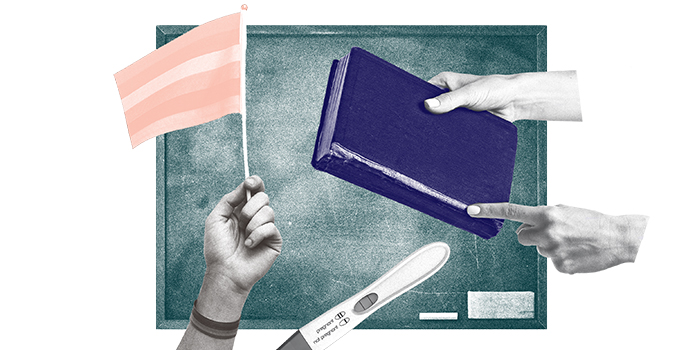Celebrating Christmas in America
The ACLU works in courts, legislatures, and communities to defend and preserve the individual rights and liberties that the Constitution and the laws of the United States guarantee everyone in this country.

Explore More
What's at Stake
In recent years, some commentators have declared that there is a so-called “war on Christmas” and, in many cases, have claimed that the ACLU is leading the charge. This simply isn’t true.
Religious expression is a valued and protected part of the First Amendment rights guaranteed to us all, and the constitutional right to worship, preach, sing carols, and celebrate Christmas—whether in public or in private—is well protected. As a result, Christmas celebrations are pervasive in America, and, except when the government is being used to promote religious beliefs, these celebrations are entirely constitutional.
Indeed, the ACLU itself has advocated on behalf of people who want to celebrate Christmas. But when the government becomes embroiled in celebrating Christmas or any religious holiday as a holy or sacred occasion, it violates our constitutional commitment to maintaining a government that is religiously neutral. That’s why, in rare instances, the ACLU has intervened when the government has failed to respect these fundamental religious freedom principles during the holiday season. But make no mistake, if you see an ACLU employee during the holiday season, they will likely greet you with a variety of holiday well wishes—including “Merry Christmas,” “Happy Hanukkah,” “Happy Holidays,” “Happy Kwanzaa,” “Happy Diwali,” “Happy Solstice,” or “Happy New Year”—and will defend your right to do the same. Â
In recent years, some commentators have declared that there is a so-called “war on Christmas” and, in many cases, have claimed that the ACLU is leading the charge. This simply isn’t true.
Religious expression is a valued and protected part of the First Amendment rights guaranteed to us all, and the constitutional right to worship, preach, sing carols, and celebrate Christmas—whether in public or in private—is well protected. As a result, Christmas celebrations are pervasive in America, and, except when the government is being used to promote religious beliefs, these celebrations are entirely constitutional.
Indeed, the ACLU itself has advocated on behalf of people who want to celebrate Christmas. But when the government becomes embroiled in celebrating Christmas or any religious holiday as a holy or sacred occasion, it violates our constitutional commitment to maintaining a government that is religiously neutral. That’s why, in rare instances, the ACLU has intervened when the government has failed to respect these fundamental religious freedom principles during the holiday season. But make no mistake, if you see an ACLU employee during the holiday season, they will likely greet you with a variety of holiday well wishes—including “Merry Christmas,” “Happy Hanukkah,” “Happy Holidays,” “Happy Kwanzaa,” “Happy Diwali,” “Happy Solstice,” or “Happy New Year”—and will defend your right to do the same. Â